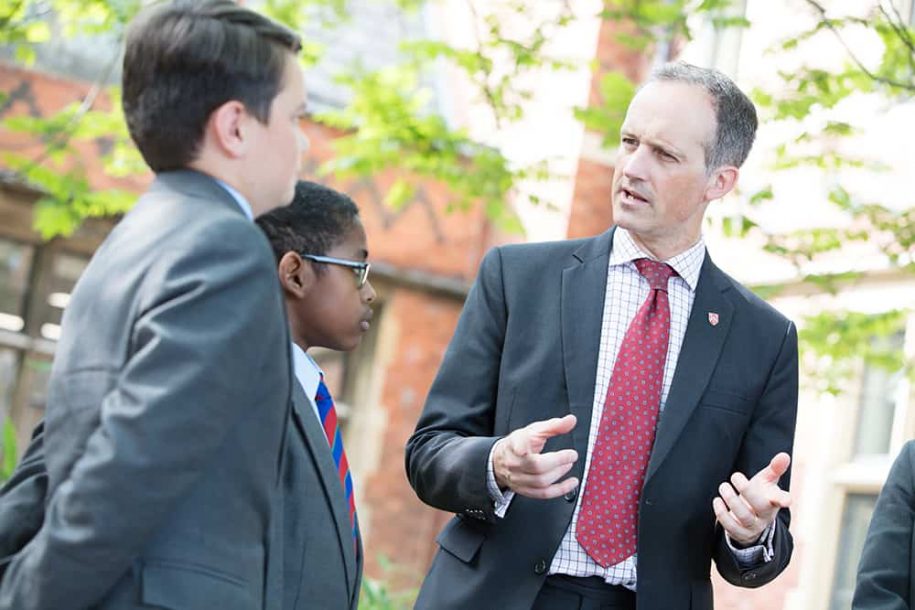Fake News

The phrase ‘Fake News’ has dominated the news agenda in recent times to such an extent that it was chosen as ‘Word of the Year’ for 2017. The concept has been front-page news since the Trump Presidential election campaign of 2016. Politicians of all persuasions are now using the phrase to discredit opponents who seek to criticise them. I chose this as the subject of a recent school assembly, since it is becoming increasingly difficult for young people to access impartial news via their chosen social media outlets and schools are realising that we have a duty to help them to discriminate between biased and reliable sources.
Fake News isn’t really anything new. There is a centuries-old tradition of political and social satire – in fact going back to classical times – where facts are exaggerated and extended in order to ridicule opponents or indeed, to make people laugh. The difference is the ease with which it can be propagated. Two hundred years ago, fake news would be peddled via a few hundred pamphlets furtively distributed among the political classes. The Internet has spawned a satire boom, and social media distributes stories from satirical news websites with little or no indication of their provenance. We have probably all chuckled at clearly fictitious but amusing articles from the Daily Mash, the Onion or the Southend News Network.
Boys’ schools are full of fake news because boys love making each other laugh. This is largely harmless, albeit more than a little mischievous, but is generally intended to amuse, rather than wound. Quite a lot of fake news is generated concerning the intentions of the Headmaster and his Senior Leadership Team. Recently, I had to dispel the myth that we intended to introduce a weekly vegan lunch for everyone in the name of healthy eating. My strangest experience happened in October 2016, when, within a week, I received three separate parental letters remonstrating about the school’s intention to run an extended day until 5.30 each evening. Pure fiction! I’m sure that this rumour was started mischievously by a pupil, just as I am aware that an anonymous boy posted a fake school Twitter page on social media when it snowed just before Christmas, claiming that the school was closed for the day. Thankfully, parents saw through the subterfuge.
These examples from the life of LGS are mischievous and pretty harmless. However, my point in school assembly to boys was that there is a lot of fake news that is unpleasant, hurtful and damaging. The ease of publishing one’s views on a blog or chat room means that fabricated news can be shared to thousands within minutes, without any checks being carried out to judge whether or not it is reliable or fair. We have been brought up to presume that what a ‘news’ site tells us must be true. That’s what we’ve learned from the BBC (which I believe to be the best news outlet in the world). Recent years have, however, seen a proliferation of unregulated websites that are trying to exploit our naivety by making us believe in fake news that suits their political agenda. Children entering adolescence are particularly vulnerable as their default position has been to trust adults.
There have been countless examples of quite vicious, misleading news in the press during the past year. After the Houston floods last summer, a story went around the US media that a mosque in a flooded part of the city was feeding its worshippers, but refusing entry to non-Muslims – a fake ‘news’ story concocted by a far-right group in order to discredit Islam. Here the problem was that the ‘story’ was requoted and retweeted by more reputable news sites, not because they too had an anti-Muslim agenda, but because they hadn’t gone to the trouble of checking whether or not the story was true. This is an increasing problem when local newspapers and radio stations are having to survive on a skeleton staff for financial reasons.
I also quoted to boys the example of the ‘Birther Conspiracy’ against Barack Obama: the story that Obama was not born in Hawaii but in Kenya, making him ineligible to be President. Although false, we are aware that millions of Americans believed the story because they had read the story on news sites that they considered reliable. Our children need to be aware that, despite the fact that we have better access to information than ever before, it is incredibly easy to find oneself in an echo chamber where one’s own views are reflected by everything that one hears or reads. Importantly, a generation hooked on social media must understand that Instagram and Facebook do not provide you with an unbiased diet of news. Instead their algorithms are designed to give you more of what you like. Republican-leaning Americans watching Fox News will be fed stories via social media that confirm their world view, as indeed will Democratic voters who prefer liberal media outlets.
My advice to boys is that we must first be aware of this bias that is part of the algorithm, and that they must also develop the instinct to check what they read and hear. If they come across an extraordinary story, they should then immediately look at the source. Is it a website they’ve heard of? If not, they should google the site. Is it a satirical joke site? Is it connected to extreme partisan political views? If they’re unsure, they can double-check the story by ‘reverse’ googling for it. If it then appears on some of the big news websites (BBC, The Economist etc.), it can be deemed to be more reliable.
The positive thing about the widespread focus on fake news is that we are being forced to become more sceptical about believing everything we read or hear. Boys need to be savvy and determined that they will not be manipulated by those with an agenda by asking these simple questions.
